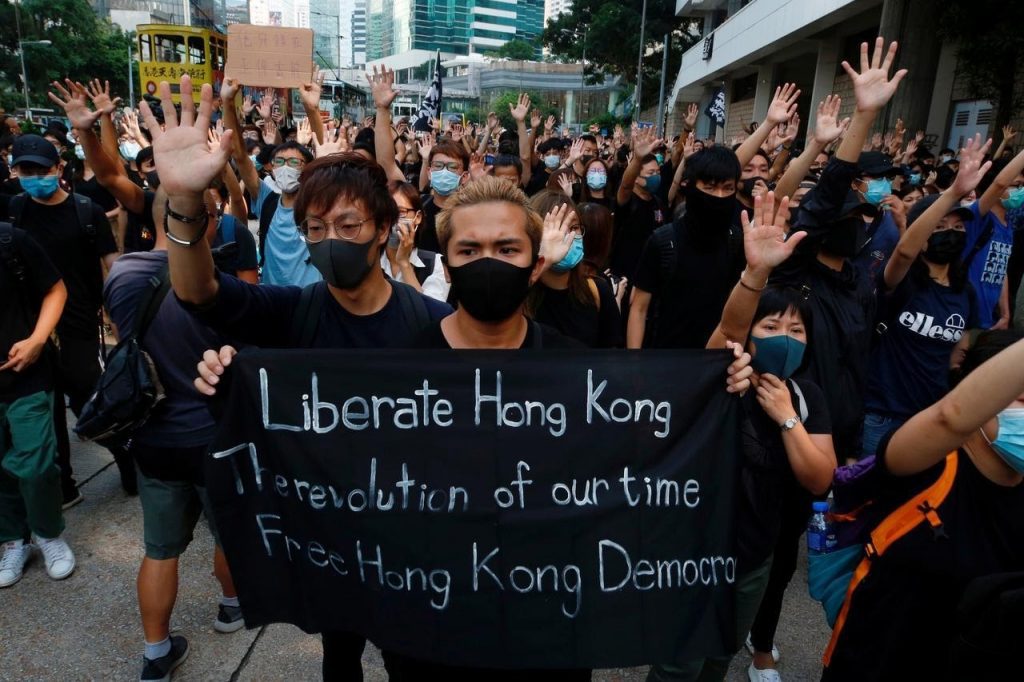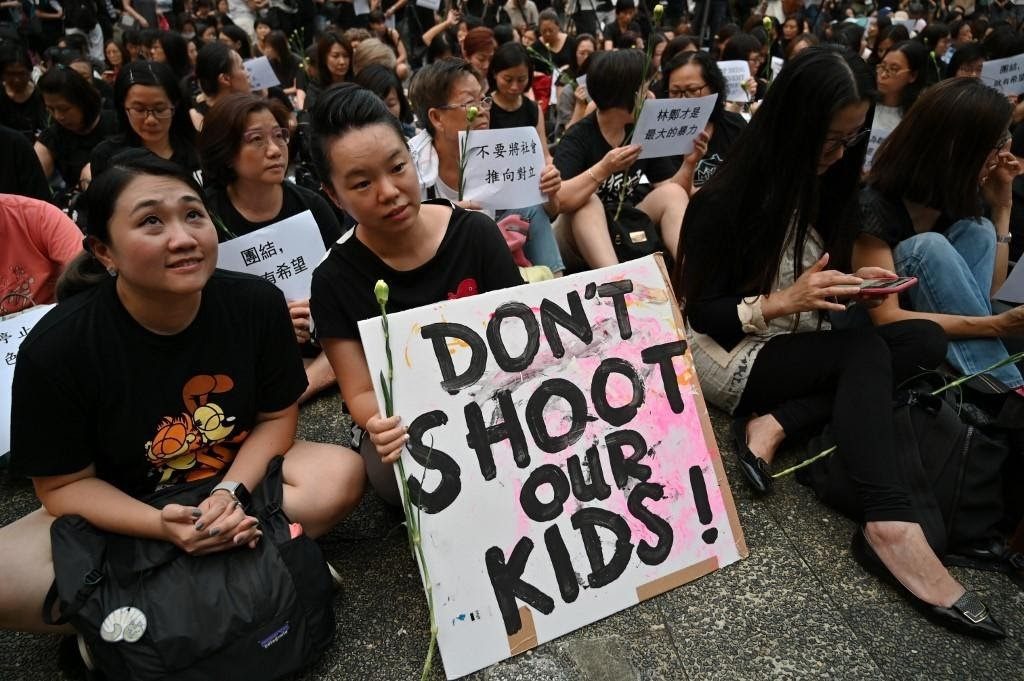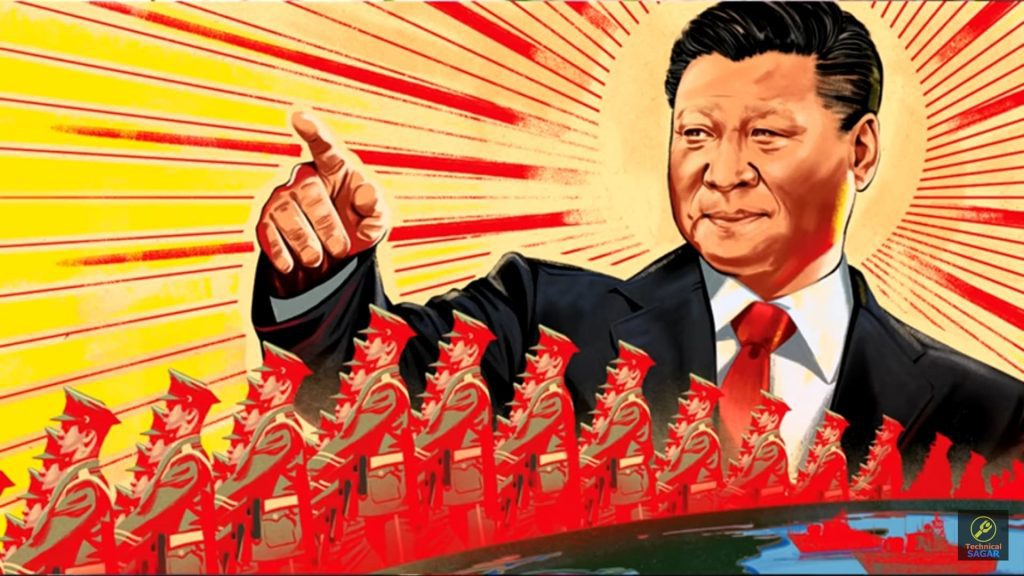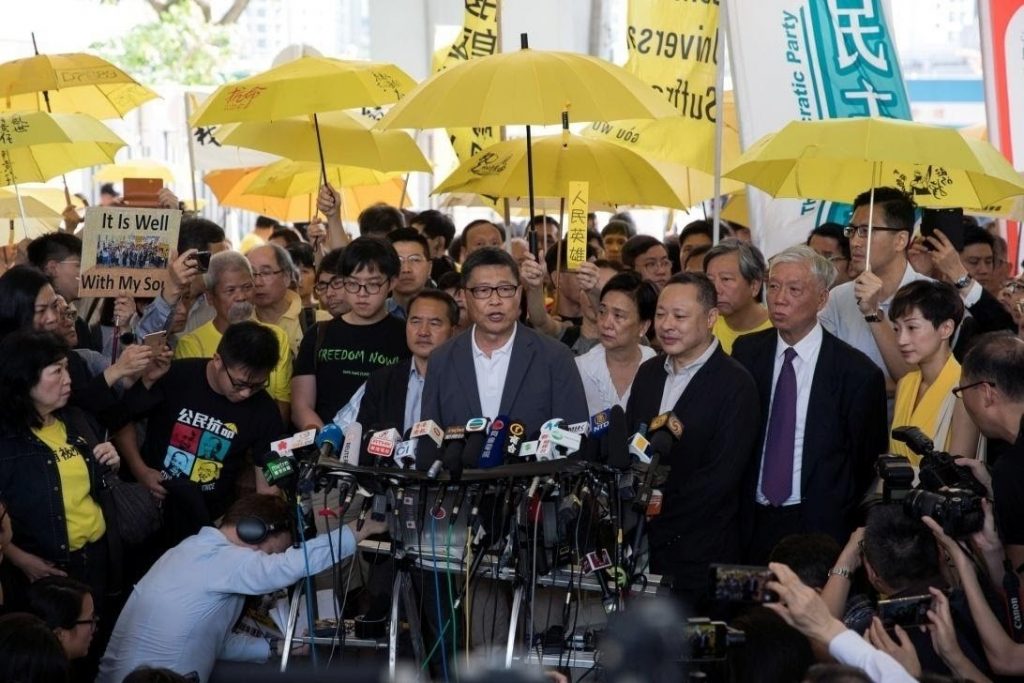
The mass political movements have become more visible during the last few decades; citizens have taken to the streets from Tiananmen Square to Tahrir Square, from the Prague Spring to the Arab Spring, from the Velvet Revolution to Hong Kong’s umbrella revolution. Nowadays, the minute you pick up a newspaper or log in to your social media handles, the first thing that catches your attention is the trending hashtags or the bold headlines covering the various protests going on around the world. What makes an individual participate in political protests such as these?
Introduction
The right to protest is a fundamental human right authorized by the Constitutions of many countries. All citizens should be enlightened of this right and its power that should be exercised when their collective interests or fundamental values are ignored.
Hong Kong had recently been a subject of pro-democracy and anti-government protests that turned out to be a geographical mess with worldwide implications. Unlike other cities in China, which are tightly administered by the authoritarian Central Government, Hong Kong is a semi-autonomous city with its own legal and political systems. The extradition bill that precipitated the first protest was proposed in April 2019. The suggested bill would have allowed the extradition of criminal suspects to mainland China. The opponents feared that Beijing could use this controversial bill to investigate people for political reasons under China’s obscure legal system.
One Country, Two Systems
The relation between Hong Kong and China is considerably more tangled than most people realize. Mainland China and Hong Kong supplement each other economically, although, their political variability remains ineradicable.
Until 1997, Hong Kong was better known as the city reigned by Great Britain for one hundred and fifty-six years, after which it emanated as a semi-autonomous province of China following a handover by Britain. The concuss authorized Hong Kong to be affiliated by One Country, Two Systems for the next fifty years. It applied that Hong Kong would be furnished with special economic and financial systems having its currency, passports, immigration channels and legal system. The political and legal differences hit the road in the Sino-British Joint Declaration and were preserved in the semi-Constitutional primary Law of Hong Kong, on that account the province’s Chief Executive Leader is appointed by Beijing.
But in April 2019, the concept of handover was scrapped, circumventing Hong Kong’s legislature bypassing the extradition bill, thereby, debarring the citizens from their special freedoms of speech and press which eventually provided a route to massive protests by the residents.
Why are people protesting?
What outlined in June, with harmonious rallies contradicting the legislation later enhanced into a steady stream of tumult with a handful of demonstrators embracing barbaric actions on the grounds of atrocious police gambit? Thousands of people took to the street and argued that the bill would empower China to target activists and journalists. It had also presented a significant challenge for China’s leaders in Beijing, who had depicted the demonstrators as a threat and accused foreign powers for backing them.
Since the allegations on police were neglected the peaceful marches turned violent adding fuel to the fire when two protesters were shot with live rounds and a man was set on fire ultimately pushing the entire city into mayhem. The widespread apathy and a sign of distrust protesters in a subway station wounding no less than forty-five of them.

Carrie Lam, the leader of Hong Kong conveyed that the propounded bill was needed as the colony consisting of seven million people would turn into a magnet for fugitives.
Hong Kong encountered one of its most vicious and tumultuous days while China celebrated seventy years of Communist Party rule on 1st October 2019, on the nail when an eighteen-year-old was shot with a live bullet as the demonstrators brawled with the police officers. The ratification had experienced ubiquitous resistance from an enormous cross-section of the public including lawyers, activists, journalists and business characters.
The demands of the Protestors
The protestors drew criticism of senseless impairment from those who opposed the movement as they had become more intense in vandalism and setting fire in subway stations. Some of them were even beaten up brutally and were accused of being an intruder. As the government remained to the impasse, peaceful marches increasingly deteriorated into a violent quarrel with police leading the movement to adopt the five major demands:
- Withdrawal of the extradition bill.
- Retract the personating of early protests as riots.
- Amnesty of those arrested at protests.
- Format an independent inquiry to inquest police brutality.
- Implementation of Universal Suffrage in Hong Kong.
A faction of demonstrators had decided to remain outside the government headquarters until the extradition bill endured its second reading, but the police moved in to launch tear gas and rubber bullets on them. By then confrontations between police and citizens had become more frequent and aggressive. The bill was formally withdrawn on 23rd October 2019, as per the leader’s announcement but dismissed the other four elemental demands of the demonstrators.
China’s role in the Protests
China had initially been eliminated from extradition alignment owing to the apprehension of its judicial independence and human rights reputation. The connection between Hong Kong and mainland China is the key element in finding an answer to the mishmash. The demonstration in Hong Kong had called upon a question about Chinese president; Xi Jinping’s perception of national unity. The representation of authority was signed out as one country, two systems and this is why dissidents of Hong Kong were anguished to shield their leisure and carry off complete democracy before 2047.

This powerful anti-China mawkishness made the dissidents target the Chinese-possessed vocation, for instance, they bust the ATMs at the Bank of China location and had even abstained from the restaurants that were under pro-China stands. Beijing had taken a stance by stating that the demurrals had shown the signs of terrorism. The Chinese president had called out for a full stop to the ferocity by saying that the ‘radical’ demurral had shivered the city’s rule of principle and that ending the violence and restoring order was Hong Kong’s most crucial and foremost task. He had also applauded the force and Lam’s authority.
The Umbrella Movement
The Umbrella Movement was a political activity that occurred during the Hong Kong democracy protests of 2014. It got the name from the use of umbrellas as an instrument for non-violent defiance to the Hong Kong police’s use of pepper spray to scatter the assemblage during a seventy- nine-day occupation of the city demanding democratic electoral reform. However, the recent protest had lasted for more than six months where conflicts between police and students were witnessed in November 2019, on the campus of Hong Kong’s Polytechnic University.

The movement consisted of protestors numbering in hundreds of thousands who played a part in the demonstration that set off on 26th September 2014. The roots of the prevailing turmoil could be detected back from the events of the summer that took place six years ago. The protest march later subsided in December 2014, but the prime exasperation contrived to rage until it finally blew up in June 2019, when a two miles long march processed for almost seven hours through Central Hong Kong. A week later, a report was proclaimed signifying Hong Kong’s Judiciary to be second in command and not independent of the government.
Impact of the Protest
The violence and vandalism had caused the city’s economy to tail off, forcing Hong Kong to enter into stagnation in October. The protest turned violent and the protestor retaliated by throwing petrol bombs. Hong Kong, already grappling with the US-China trade war, also had to face the shrinking GDP, while the number of tourists drastically came down.
Hong Kong had set foot in an economic recession as two quarters of negative growth were shown. The existing economic dismantle had been piled up by the uproar aiming for greater freedom. The plunging tourists’ number made the hotels struggle to fill their rooms forcing the hotel owners to blow out the prices and compelling the workers to cut down work hours.
Local businesses and firms suffered huge losses, investments were vanishing and retails were going aloof. A lot of big firms were suffering a dilemma between supporting the protestors and facing backlash from the Chinese mainland. A single tweet from the general manager of NBA, in solidarity with the protestors, drew much criticism that the company had to give in to the dissent. The Chinese government has managed to thwart the protest to a lot of extents.